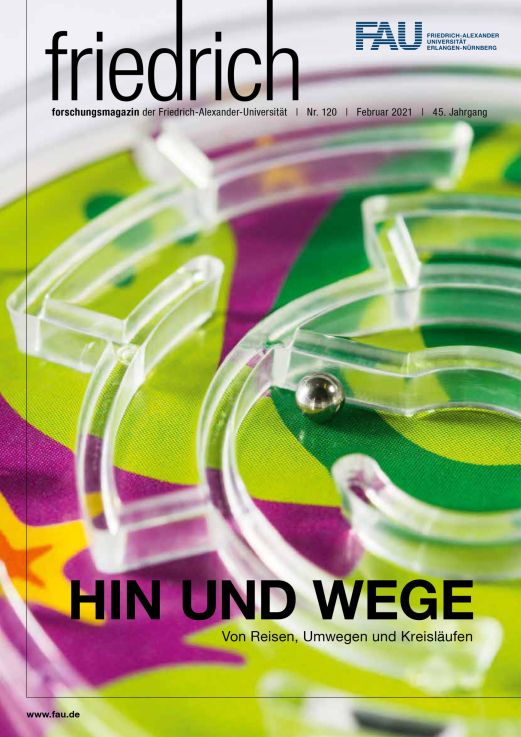Starting an academic career

More than 4000 academic staff teach and research at FAU – how did they start their careers? We asked a few of them to find out.
Prof. Dr. Heike Paul, Chair of American Studies, focusing on North American literature and cultural studies

When she was eight years old, Heike Paul wanted to be a teacher, then an archaeologist and later a police detective. Professor Paul is still fascinated by solving cases in good crime novels – after all, research is often quite similar to detective work. As her parents didn’t have any specific ideas of the path she should follow, Heike Paul was able to choose something she was interested in. She got into research because of a series of turning points, lucky coincidences and a lot of questions she wanted to find the answers to.

Dr. Andrea Thoma-Kreß, Chair of Clinical and Molecular Virology
Andrea Thoma-Kreß either wanted to grow vegetables or juggle numbers as a tax consultant, but her parents wanted her to choose something she liked doing and that she could make a living from. Reading novels about epidemics laid the foundations for her academic career and her interest grew during the the practical experiments she did while writing her first extended essay at school. She finally made her decision to pursue a career in science when the Molecular Medicine degree programme was introduced at FAU.

Prof. Dr. Moritz Zaiß, Professorship for Multi-Modal Imaging in Clinical Research
He wanted to be an inventor, but his parents would have liked him to become a tax consultant. It turned out differently in the end, though, as Zaiß realised he wanted to become a scientist after he and his brothers fixed a broken record player and listened to ‘Major Tom’ for the first time.
Prof. Dr. Maike Debus, Professorship for Business Psychology

As a child, Maike Debus wanted to be a vet, astronaut, and an artist. Her parents thought she would do ‘something to do with art’ or become a teacher. As she was writing her thesis, she realised that she wanted to do a doctoral degree. While studying for her doctoral degree, her desire to stay in research continued to grow. Just as well, as she never really had a plan B.
Elisabeth Hoppe, Chair of Computer Science 5 (Pattern Recognition)

She didn’t know what she wanted to be when she grew up, but Elisabeth Hoppe was interested even then in healthcare, which is why her parents thought she would become a doctor (or a teacher because was a fast learner). Her interest in research grew while she was working on her Bachelor’s thesis. For Hoppe, there’s nothing better than puzzling over problems and finding creative solutions for them and discovering something new every day.

Dr. Chandra Macauley, Chair of Materials Science
Chandra Macauley grew up in Montana, USA, where she initially wanted to be a cowgirl and then an architect so she could draw plans for her houses made of Lego. Her parents never told her which career path to take. They guessed that she might become a scientist when she dismantled the Christmas lights to make lights for her Lego houses at the age of nine.

Dr. Emilia Jarochowska, Chair of Palaeoenviromental Research
She wanted to become a biologist, but her parents wanted her to do something creative. Jarochowska clearly remembers the day when she decided she wanted to become a scientist. One day in fourth grade, she went outside to play after a biology lesson, but couldn’t really concentrate. She had just learned that a seemingly ordinary lettuce leaf has ‘superpowers’ capable of harnessing the Sun’s energy. To her, it seemed as if she had just seen the Earth for the very first time.
Prof. Dr. Patricia Wiater, Professorship for Public Law, Basic Rights and Human Rights

She thought she would be a professional show jumper, whilst her parents kept their ideas about a future career for their daughter to themselves and trusted Patricia Wiater’s talents and ambition. She ended up in research thanks to her doctoral degree in German and French Law where she studied in the beautiful city of Strasbourg and worked at the European Court of Human Rights. She cannot imagine a better career than one that allows her to experience all these things.
FAU research magazine friedrich
 This article first appeared in our research magazine friedrich. You can order the print issue (only available in German) free of charge at presse@fau.de.
This article first appeared in our research magazine friedrich. You can order the print issue (only available in German) free of charge at presse@fau.de.